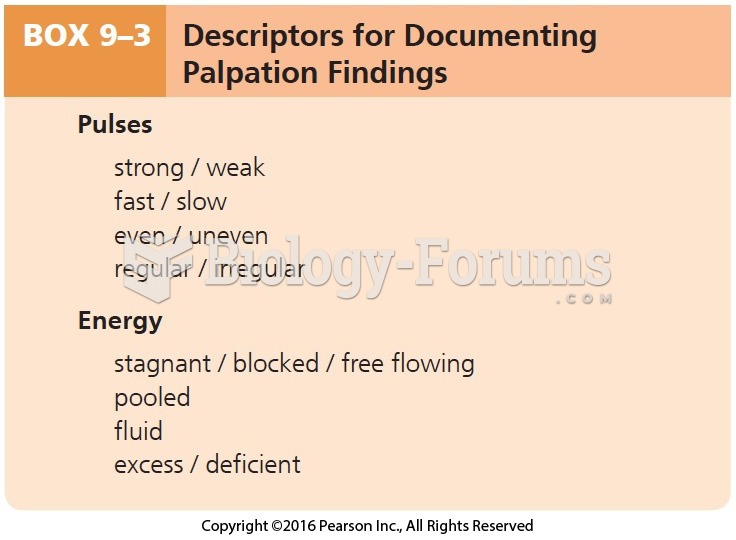|
|
|
As of mid-2016, 18.2 million people were receiving advanced retroviral therapy (ART) worldwide. This represents between 43–50% of the 34–39.8 million people living with HIV.
People with high total cholesterol have about two times the risk for heart disease as people with ideal levels.
Adults are resistant to the bacterium that causes Botulism. These bacteria thrive in honey – therefore, honey should never be given to infants since their immune systems are not yet resistant.
People often find it difficult to accept the idea that bacteria can be beneficial and improve health. Lactic acid bacteria are good, and when eaten, these bacteria improve health and increase longevity. These bacteria included in foods such as yogurt.
Chronic marijuana use can damage the white blood cells and reduce the immune system's ability to respond to disease by as much as 40%. Without a strong immune system, the body is vulnerable to all kinds of degenerative and infectious diseases.
 Organizational Effects of Testosterone Around the time of birth, testosterone masculinizes and defem
Organizational Effects of Testosterone Around the time of birth, testosterone masculinizes and defem
 Emanuel Leutze’s Washington Crossing the Delaware (1851) is riddled with historical inaccuracies, mo
Emanuel Leutze’s Washington Crossing the Delaware (1851) is riddled with historical inaccuracies, mo





